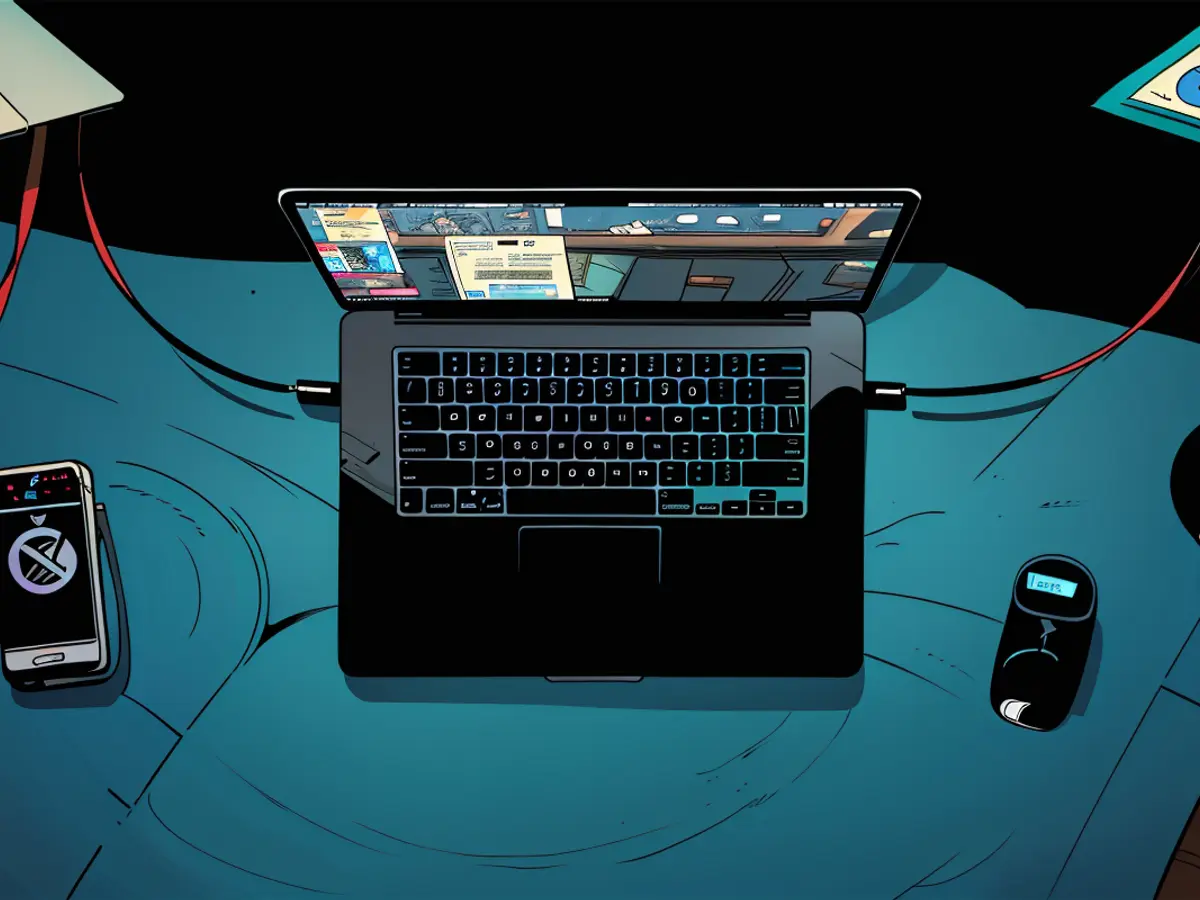Low-tier Macs Potentially Boost Memory Capacity from Now On
For a decade, Apple has typically equipped most Macs with a default 8GB of RAM. If you wanted more, you'd need to pay a considerable sum. For example, adding 8GB of RAM (usually in increments of 8GB) to most current models costs $200. Keep in mind that the starting price for a MacBook Air is $999, but 16GB of RAM will raise that cost to $1,199.
However, this standard might change in 2023. According to Bloomberg's Mark Gurman, Apple is revamping four Mac models with the M4 chip, which is currently exclusive to the latest iPad Pros. Gurman claims that developing sources have witnessed test logs of Apple's upcoming Macs, showing that all base models will come with either 16GB or 32GB of memory.
It is unclear which Mac models are being revamped, although Bloomberg reports that Apple is first introducing the M4 chip to the MacBook Pro, Mac mini, and iMac. It would seem that Apple is not planning to incorporate an M4 chip with 8GB of RAM in its future lineup. If this is true, 16GB might become the new default for Apple. This could be due to Apple's future plans for Apple Intelligence—the company might feel that future Macs require a minimum of 16GB of RAM to effectively run its suite of AI features. However, AI is not the only reason – increasing the default RAM would provide a significant improvement for users.
Why is 16GB of RAM noteworthy?
Apple asserts that 8GB of RAM is sufficient for running macOS on your Mac. It is the standard configuration option for every base model iMac, Mac mini, MacBook Air, and MacBook Pro.
While the company may not be entirely wrong – an entry-level Mac can perform everyday tasks such as browsing the web, checking email, and video calling – the limitations begin to show when you require more from your Mac. RAM acts as your Mac's short-term memory, helping manage all the concurrent processes running between your open applications. Generally, more RAM allows for more applications and processes without straining the system.
So, 8GB should suffice for simple Mac usage. However, when you wish to perform more tasks or run demanding apps, you'll soon reach the 8GB limit. Once that happens, your Mac will resort to utilizing its SSD to "borrow" extra memory. This will work for a while, but pushing the system too far will result in your Mac slowing down. Inadequate memory pressure can cause your Mac to slow down, opening new apps to take longer, Safari tabs to freeze, and your macOS experience to deteriorate.
Upgrading the RAM prior to purchase is an option, but remember: it's pricey. If you wish to upgrade the storage as well, since many Macs only come with 256GB SSDs, this will only increase the cost. And beware: while some Macs can be upgraded, most are not. If you discover after a year or two that 8GB of RAM isn't enough, you cannot add more memory like with other devices. Affordable, lightweight laptops often come with a trade-off in upgradability.
What makes the MacBook Pro a "Pro" model?
Offering 8GB of RAM on an entry-level MacBook Air or iMac is understandable. Offering it on a "Pro" machine, however, is another matter. The Apple M3 base model MacBook Pro ships with, unsurprisingly, 8GB of RAM. The MacBook Pro is marketed as a choice for professionals: individuals with demanding careers that require high-performance machines. For $1,599, you receive a relatively powerful M3 chip and a capacious 512GB SSD, yet you still end up with only 8GB of RAM.
The M3 Pro MacBook Pros offer 18GB of RAM as a standard feature, but at a premium. The 14-inch model costs $1,999 and the 16-inch costs $2,499. It's not cheap.
There is a heated debate about RAM requirements and business strategies, but the bottom line is this: an upgrade in Apple's RAM standards would be fantastic. Certainly, you may not require 16GB of RAM at the moment, but for MacBook users spending between $999 and $1,799, it is crucial that their machines have enough RAM to last the duration of their ownership.
In terms of tech, many users are eagerly waiting to see if Apple will indeed make 16GB or even 32GB of RAM the default in its revamped Mac models in 2023. As of now, upgrading RAM on most Macs comes at a significant cost, which can be a limitation for users who require more than 8GB for their demanding tasks.
Currently, Apple equips most Macs with a default 8GB of RAM, considering it sufficient for running macOS. However, tech enthusiasts often find themselves reaching this limit when performing more complex tasks or running resource-intensive applications. Upgrading the RAM before purchase can be expensive and may not even be an option for some Mac models.








